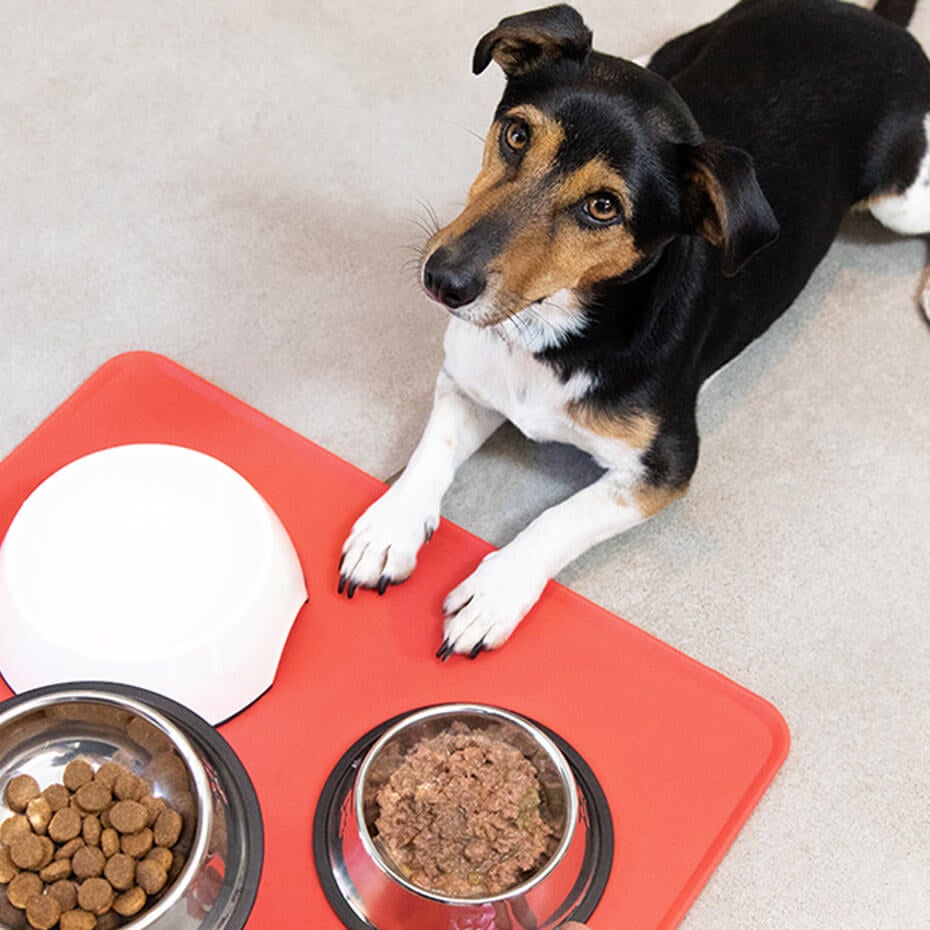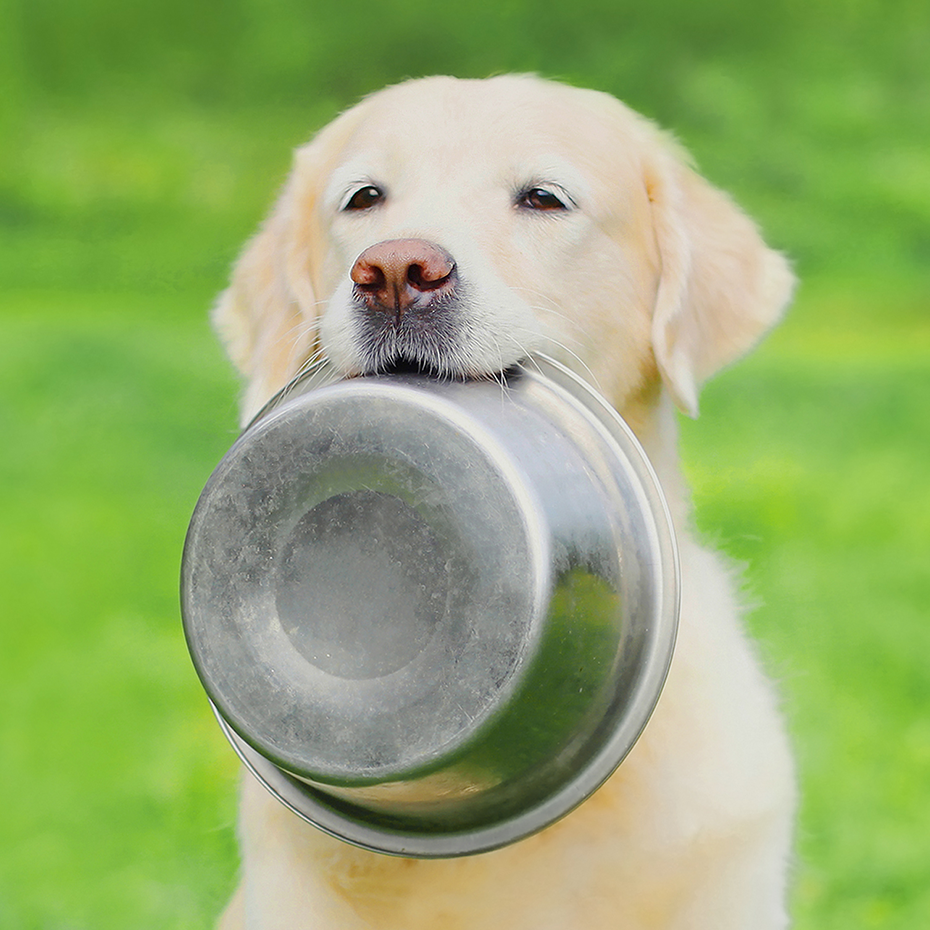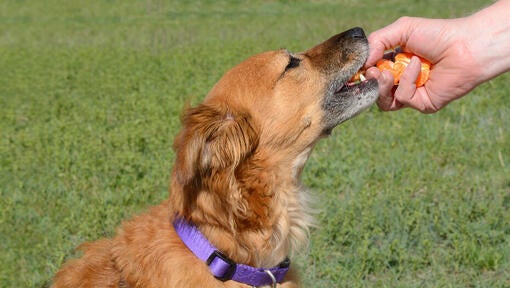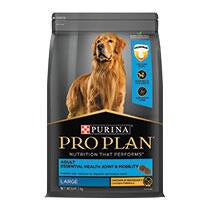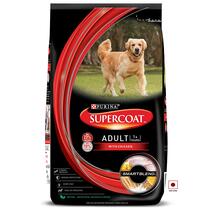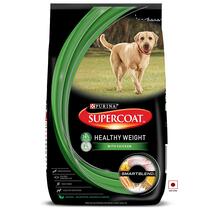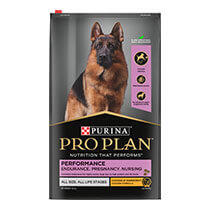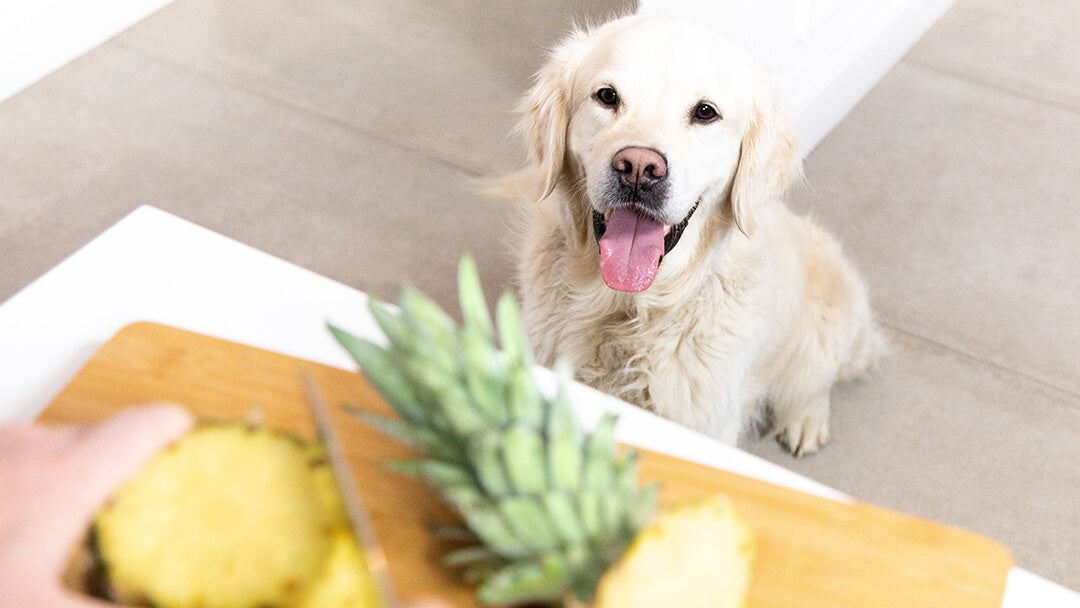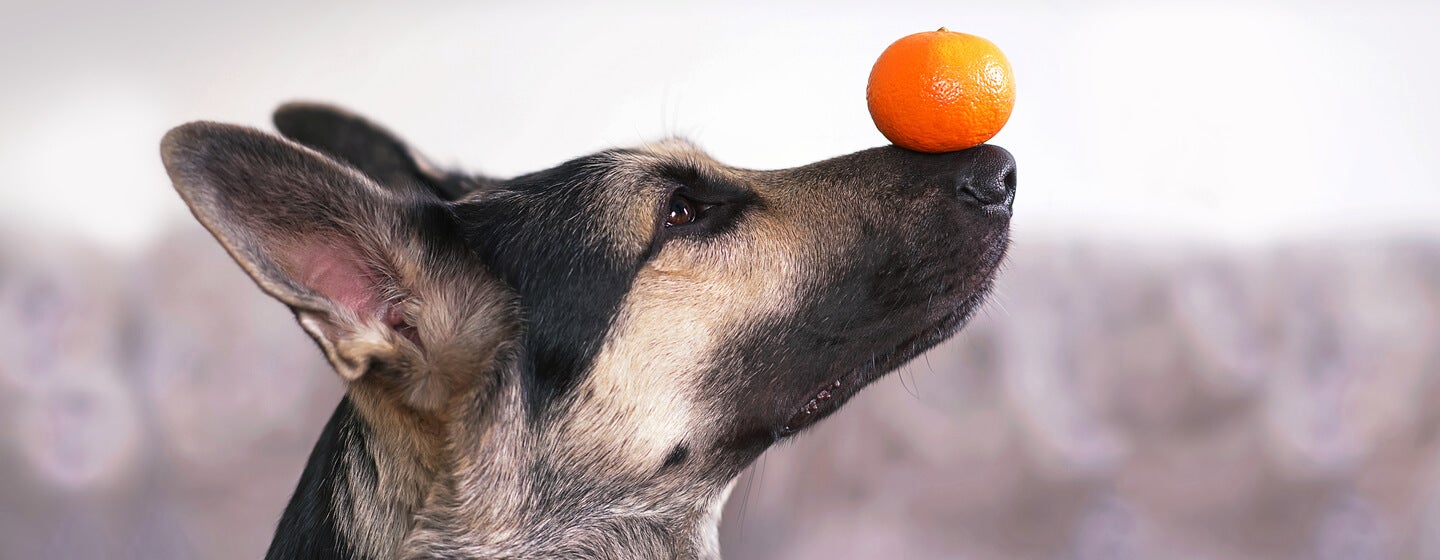
We love the zesty taste of oranges and their unforgettable smell. And if your dog agrees, it’s natural to wonder if the canine friend is safe getting a taste of this fruit.
Whether your dog is pleading to let them have some of that juicy orange you’re snacking on or your pet has already helped themselves to an orange bite unbeknownst to you, you’re probably wondering if dogs can have this tasty fruit as a treat without any unfortunate consequences.
Here is what you need to know about dogs, oranges and how to react when your pet is begging for a taste.
Can dogs eat oranges?
Yes, dogs can eat oranges. This citrus fruit is not toxic or dangerous to dogs, and while oranges have no particular nutrients that could have a negative effect on an otherwise healthy dog, moderation is key. On average, you should not feed your dog more than two orange slices, but keep in mind your dog’s size when thinking about portion control.
Don’t forget it’s always best to check with your vet before adding human foods to your dog’s diet, even as an occasional treat. And keep an eye out for your dog’s reaction to the new food.
Are oranges good for dogs?
Oranges are full of vitamin C, fibre and potassium. And although the nutrients found in oranges help maintain a healthy immune system, dogs will usually take the nutrients they need from specially-formulated dog food.
Of course, a little boost of vitamin C won’t hurt, but it’s best to think of oranges more as the odd treat rather than a necessary addition to your dog’s daily diet.
Find out more about how to feed your dog a balanced diet with our in-depth article.
When can oranges be harmful for dogs?
Dogs can have oranges, but only in moderation. Oranges are high in sugar and acid content which could potentially make existing health problems worse. Ask for the vet’s advice before feeding oranges to your pet if:
Your dog has diabetes
If your dog has been diagnosed with diabetes, this means that they are prone to spikes in blood sugar levels. Dogs suffering from diabetes should stay away from fruits that are high in sugar, including oranges.
Your dog is overweight
Oranges will also add to the calorie count, so if you’ve got an overweight dog that loves the taste of oranges, be mindful of the extra calories this fruity snack adds to their daily allowance. Consider offering strawberries to your dog instead, as the caloric content is not as high compared to oranges. You can find out how to feed strawberries to your dog here.
Your dog suffers from intestinal problems
Dogs with sensitive digestions might get an upset stomach after consuming oranges. The acidity levels in this fruit make it a problematic treat for dogs with gastrointestinal issues, so ask the vet for advice beforehand and make sure to monitor your dog’s reaction to the fruit.
Can dogs have orange peels or seeds?
Orange peels don’t contain any dangerous substances, but they are difficult to digest and should be considered, alongside seeds, a choking hazard. The orange peel can also become lodged in the digestive tract. Make sure you remove both the peel and the seeds, before offering your dog an orange treat.
Can dogs have orange juice?
While not toxic, orange juice and orange-flavoured drinks are not a healthy option for dogs. Due to the high levels of sugar and acidic content, it’s better to offer the natural fruit itself as a snack.
If your dog is suffering from diabetes or is overweight, you should avoid offering them oranges, whether they’re the actual fruit or squeezed in a bottle of juice.
Can puppies eat oranges?
Puppies can eat oranges, but in very small amounts. Make sure the peel and seeds are removed before offering the orange to your puppy and look out for any unusual reactions.
In conclusion, dogs can have oranges (with the peel and seeds removed) in moderation, but owners should be aware that certain health issues can be made worse by the sugar and acid levels found in this fruit. Always ask for the vet’s opinion before allowing your dog to try the new food they’re pleading for.
If you’re looking for a healthy dog treat, we put together a list to get you inspired. And if you want to find out more about health and nutrition, browse our handy dog feeding guides, next.
